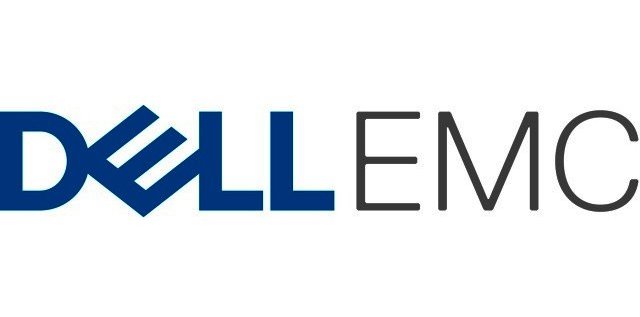E-Business
Dell EMC Expands Data Protection Capabilities

Dell EMC has unveiled new and enhanced capabilities to the Dell EMC Data Domain and Integrated Data Protection Appliance (IDPA) portfolio of backup storage appliances designed to offer organisations real-world flexibility and value with expanded multi-cloud capabilities and improved performance.
The enhancements also provide mid-sized organisations and remote offices of larger organisations with more choice and options in obtaining enterprise-level data protection.
According to IDC, 92 percent of organisations have adopted a cloud environment with 64 percent adopting a multi-cloud approach.3 With a mix of different clouds, protecting data across workloads while meeting compliance and security requirements is a critical challenge for many organisations.
In fact, according to a study conducted by IDC for Dell EMC, cross-cloud support was the highest recognised data protection deficiency for IT transformation.4 Dell EMC recognises this challenge and continues to enhance its data protection appliances to help customers mitigate risk and protect their most valuable asset – their data – in multi-cloud environments.
Multi-cloud capabilities
Data Domain OS 6.2 and IDPA 2.3 software now provide customers with even more choice to extend their data protection to public clouds with expanded Cloud Tier support to Google Cloud Platform and Alibaba Cloud, thereby, enabling more flexibility for long-term retention.
This is in addition to support already offered across AWS, Microsoft Azure, Dell EMC Elastic Cloud Storage, Virtustream, Ceph, IBM Cloud Open Storage, AWS Infrequent Access, Azure Cool Blob storage and Azure Government Cloud. Also, a new Free-space Estimator Tool for Cloud Tier helps enable more efficient capacity management to help reduce on-premises and cloud storage costs.
Dell EMC also expanded its ecosystem of supported public cloud providers for Data Domain Virtual Edition (DD VE), which provides software defined data protection on-premises and in public clouds, to AWS GovCloud, Azure Government Cloud and Google Cloud Platform. This adds to the already supported platforms AWS S3 and Azure Hot Blob.
The expanded cloud ecosystem combined with the previously announced increased capacity for DD VE – up to 96TB per instance – ensures customers will receive the same level of protection within their growing cloud environments as they receive from their on-premises Dell EMC appliances.
Additionally, Native Cloud Disaster Recovery is now available across the entire IDPA family, enabling customers to cost-effectively failover to a cloud environment with end-to-end orchestration. Customers no longer have to bear the expense and management of setting up and maintaining a secondary site for disaster recovery and can failover to public clouds with ease in case of a disaster event and failback when the issues are resolved.
With this expansion, all Data Domain and IDPA models support AWS, including VMware Cloud on AWS, and Microsoft Azure for Cloud Disaster Recovery.
Organisations will also find peace of mind in that all Dell EMC data protection appliances provide modern, simple-to-manage user interfaces. Also, administrators can easily manage multiple Data Domain and DD VE appliances – on-premises or in public clouds – from a single user interface with the Data Domain Management Center.
Enhanced performance
Updates to the IDPA family now provide more performance for Instant Access and Restore with an enhanced data cache that results in up to four times more inputs/outputs per second (IOPS), providing up to 40,000 IOPS with as little as 20 milliseconds latency.5
Also, Data Domain appliances provide faster restores from an on-premises appliance and faster recalls from public clouds. Given these enhancements, organisations can now restore their data up to two-and-a-half times faster from a Data Domain appliance1 and recall their data up to four times faster from the cloud2 to a Data Domain appliance, allowing them to meet more stringent SLAs.
More options for mid-sized organisations
Choice and scalability are critical for smaller, mid-sized organisations that require enterprise-level, cloud-enabled data protection. In addition to cloud and performance updates, Data Domain DD3300 – a 2U appliance specifically designed for mid-sized organisations and larger enterprises with remote offices – has new hardware enhancements. DD3300 now offers an additional 8TB capacity model that can scale and grow-in-place to 32TB. Also, DD3300 now comes with faster networking capabilities with support for 10GbE and expanded backup options for virtual tape libraries (VTL) over Fiber Channel. These options provide mid-sized organisations with a cloud-enabled data protection solution that can grow as their needs change.
Supporting Quotes:
“As the industry leader in data protection appliances6, Dell EMC is committed to delivering continued innovation in our data protection portfolio that supports and improves customers’ adoption of multi-cloud environments,” said Beth Phalen, president, Data Protection, Dell EMC. “Our appliances are powerful, simple to manage and make it easy to expand to public clouds with native cloud capabilities.”
“Our long-standing relationship with Dell EMC has resulted in numerous successes for our business. We’re experiencing cost savings, greater efficiency and faster backup and recovery times with Dell EMC Data Domain and IDPA,” said John McFall Senior Vice President, Enterprise Technology Group, Security Service Federal Credit Union. “These results combined with the fact that our data is safe and secure allows me to sleep well at night.”
“Data protection efforts are a foundational part of the digital transformation efforts many organisations will embark on by 2020,” said Phil Goodwin, Research Director, IDC. “Purpose-built backup appliances, like Dell EMC Data Domain and Integrated Data Protection Appliance, have become a cornerstone of data availability improvement efforts.
They provide faster, more reliable backup with fewer job failures than other data protection options and, more importantly, support faster data restoration in the event of a loss which directly impacts an organisation’s bottom line.”
E-Business
Africa’s Data Workers are Being Exploited by Foreign Tech Firms – Report

Data workers in Africa often have a hard time, according to a report published in theconversation.com, a nonprofit, independent news organization dedicated to unlocking the knowledge of experts for the public good.

The article by Mohammad Amir Anwar, senior lecturer in African Studies and International Development, University of Edinburgh, found that data workers in Africa face job insecurities – including temporary contracts, low pay, arbitrary dismissal and worker surveillance – and alarming physical and psychological health risks.
The consequences of their work can include exhaustion, burnout, mental health strain, chronic stress, vertigo and weakening of eyesight.
Data work includes text prediction, image and video annotation, speech to text validation and content moderation.
The world of data work is built on labour arbitrage – exploiting the fact that workers earn less and have less protection in some countries than in others.
Large technology firms often outsource this work to the global south, including African countries like Kenya, Uganda and Madagascar, and also India and Venezuela.
The result is complex production networks that are generally opaque and shrouded in secrecy.
Workers and researchers have issued many warnings about data workers’ health.
Despite numerous court cases in multiple jurisdictions, nothing much has been done to address these issues either by tech companies or by regulators.
Still, the news of the death of a Nigerian content moderator, Ladi Anzaki Olubunmi, who was found dead in her apartment in Nairobi, Kenya on 7 March 2025, came as a shock.
While the circumstances of her death are still unclear, it has renewed calls for wider systemic change.
Her death has sparked condemnation from the Kenyan Union of Gig Workers, which demanded an investigation.
Since 2015, we have been studying the central role of African data workers in building and maintaining artificial intelligence (AI) systems, acting as “data janitors”.
Our research found that companies rarely acknowledge the use of human workers in AI value chains, thus they remain “hidden” from the public eye. In other words, the world of AI is built on the toil of human workers most people are unaware of.
In this article, we outline key steps needed to protect these data workers in Africa.
They include business process outsourcing regulations, ensuring quality rather than quantity of jobs, and providing social protection. There is also a need to name and shame companies that maltreat data workers.
Data work needs tighter regulation.
Regulation
Business process outsourcing is the practice of procuring various processes or operations from external suppliers or vendors.
Firms that do this are sometimes trying to evade local regulations (like minimum wages) and responsibility towards workers’ welfare (via sub-contracting and the use of temporary employment agencies).
This is happening in Africa as some data training firms and digital labour platforms circumvent local labour laws.
But there is more to the story.
Data work is also seen by lawmakers and practitioners as a solution to the rampant unemployment and informality across Africa.
African governments have actively created regulatory environments that enable these practices to thrive, despite adverse outcomes for workers.
Nonetheless, new regulations have been proposed lately, like the Kenyan government’s Business Law (Amendment) Bill, 2024 targeting the wider business process outsourcing and IT-enabled services sector.
Particularly, it makes business process outsourcing firms responsible for any claim raised by employees. It ensures some accountability for firms bringing data work to Africa.
Other governments should follow with similar measures ensuring worker rights are enforceable. Some data workers are hired on contracts as short as five days and get paid less than the local minimum wage.
Firms found violating labour standards should be penalised.
In fact, there is an urgent need to create regional or continent-wide regulatory frameworks covering the business process outsourcing sector, limiting the space for firms to exploit workers.
It’s possible, however, that jobs might be lost as firms relocate to places with favourable laws, an everyday reality in the outsourcing networks.
Quality, not quantity
African governments should prioritise the quality of jobs and not quantity. Policymakers should think about wider national economic development plans, particularly structural diversification and upgrading of their economies.
Historically, these strategies have resulted in success in some states, addressing social and economic issues such as unemployment, poverty and inequality.
Another option for African governments is to enhance social protection among data workers.
Financing this is a serious issue, so proper taxation and compliance among workers and employers is urgently needed.
Finally, there is a role for naming and shaming firms that treat their data workers poorly. There is evidence that such efforts improve compliance and firms’ behaviour.
Worker movements
African data workers have taken risks in openly speaking about their experiences.
But these kinds of approaches work well when combined with collective bargaining.
Workers have historically won their labour and civil rights after long and hard-fought struggles.
There is a long history of African worker movements and trade unions resisting the apartheid and colonial regimes across the continent.
While the freedom of association is enshrined in the African Charter on Human and Peoples’ Rights and most governments have legislation committed to collective bargaining, it is rarely implemented in the new outsourcing sectors, particularly data work.
It is also difficult to organise workers in the industry, because of the high churn rate. For instance, data training firms like Sama offer short-term contracts to employees, often as short as five days.
Some firms are hostile to workers’ organising activities.
But numerous data worker-led associations have emerged in Africa recently, some led by the co-authors of this article.
Techworker Community Africa, African Tech Workers Rising, African Content Moderators Unions and Data Labelers Association are among them.
These initiatives are crucial to ensure workers have decent remuneration, work-life balance, adequate working hours, protection against arbitrary dismissal, safe working environments, and contributions towards their health and welfare.
Several high-profile court cases are currently being pursued by African data workers against Meta and Sama.
There is precedent. In 2021. Meta was ordered by a Californian court to pay US$85 million to 10,000 content moderators.
AI-dependent tools such as ChatGPT or driverless cars would not exist without African data workers. They are tired of being “hidden”. They deserve to be treated with respect and dignity.
Mophat Okinyi, Kauna Malgwi, Sonia Kgomo and Richard Mathenge co-authored this article.
E-Business
NIMC Says NIN Mandatory to Government Loans

National Identity Management Commission (NIMC) said the National Identification Number (NIN) is a mandatory requirement for securing government loans.

NIMC said on its social media platform that the identity number has become compulsory for Bank of Industry (BOI) loans.
NIMC said, “Enroll for your NIN today to access business aid and other opportunities from the Bank of Industry.
“To access the services of the Bank of Industry (BOI), enroll for the NIN.”
Recall that the federal government, through the Federal Ministry of Industry, Trade, and Investment (FMITI), established three funds totaling N200bn to support businesses across Nigeria.
The fund will be accessed at nine per cent interest, to be disbursed by the Bank of Industry (BOI).
The funds established by the government were the Presidential Conditional Grant Scheme (PCGS), the FGN MSME Intervention Fund, and the FGN Manufacturing Sector Fund.
The government appointed BOI as the executing agency for the funds and is empowered with the responsibility for their day-to-day administration.
“The Presidential Conditional Grant Scheme (PCGS) is a N50bn grant scheme to support eligible Nano Business owners. The grant will be disbursed to a minimum of 1,000 beneficiaries, especially women and youths, per Local Government Area (LGA) in the 774 LGAs across the nation and the six Council Areas in the FCT.
“The target Nano businesses include traders, food vendors, ICT businesses, transporters, artisans, and creatives, among others,” said Dr. Olasupo Olusi, managing director/chief executive officer, BOI.
E-Business
SystemSpecs’s Subsidiary Deelaa Becomes Whatadeal

SystemSpecs Holdings Ltd unveiled at the weekend the rebranding of its subsidiary Deelaa to Whatadeal, launching an ambitious digital commerce platform poised to transform travel, events, and e-commerce across Africa.

John Obaro, group managing director, SystemSpecs, and Fela Bank-Olemoh, managing director of Whatadeal
The announcement comes amid a surging demand for integrated digital services in Nigeria and beyond, as the continent’s e-commerce and travel sector stand on the cusp of exponential growth.
The launch event, held in Lagos, demonstrated SystemSpecs’ vision for a seamless, value-centric consumer experience.
This strategic rebrand follows the company’s acquisition of Knit Technologies, amalgamating cutting-edge innovation and industry expertise into Whatadeal—one of four subsidiaries under the SystemSpecs umbrella.
John Obaro, group managing director, SystemSpecs, emphasized that the transformation reflects an unwavering commitment to technological advancement and customer empowerment.
“Whatadeal transcends a mere rebranding—it embodies a dynamic ecosystem designed to deliver unparalleled value and memorable experiences,” Obaro told reporters.
He elaborated, “Our ambition is to ensure that whether you’re organizing an event, procuring tickets, or seeking the finest deals, Whatadeal is your definitive destination. We are also in advanced discussions with leading travel industry players to curate exceptional travel experiences across Nigeria.”
Originally introduced in 2022 as an e-ticketing and marketplace platform, Deelaa catered to both businesses and consumers.
Its evolution into Whatadeal responds to shifting market dynamics, offering an integrated solution for booking flights, securing event tickets, and shopping online.
The platform will be powered by Remita, SystemSpecs’ acclaimed electronic payment and collection system, which underpinned Nigeria’s Treasury Single Account initiative—one of the most extensive implementations of its kind in Africa.
Steering this venture is Fela Bank-Olemoh, managing director of Whatadeal and a SystemSpecs stalwart since 1998.
With over two decades of expertise spanning technology, marketing, and public service, Bank-Olemoh brings a formidable pedigree to the role.
He founded MediaVision Limited, a preeminent sports marketing firm in Nigeria, before serving as Special Adviser on Education to the Lagos State Governor from 2015 to 2019 and later as Senior Special Assistant on Education Interventions to Nigeria’s President from 2019 to 2023.
Bank-Olemoh articulated the platform’s ethos: “At Whatadeal, we hold that exceptional experiences and valuable offers should be effortless, not convoluted. Our mission extends beyond merely facilitating deals—we are cultivating an ecosystem that nurtures engagement, trust, and enduring value for our customers.”
He added, “Whether you’re arranging travel, acquiring event tickets, or purchasing essentials, you deserve an intuitive, rewarding experience that consistently delivers excellence. Whatadeal is dedicated to realizing that vision.”
SystemSpecs aims to establish Whatadeal as the preeminent one-stop platform for African consumers, blending convenience with competitive offerings.
With its fusion of Knit Technologies’ innovations and Remita’s robust infrastructure, Whatadeal is poised to redefine digital commerce on the continent.

 Telecom2 days ago
Telecom2 days agoMTN, Lynk Global Make Africa’s First Satellite-to-Mobile Call

 E-Business2 days ago
E-Business2 days agoSystemSpecs’s Subsidiary Deelaa Becomes Whatadeal

 E-Financial2 days ago
E-Financial2 days agoNigeria Gets Fresh $500m World Bank Loan for Economic Stimulus Programme

 General News2 days ago
General News2 days agoSERAP Asks National Assembly to Drop Bill to Jail Nigerians who Fail to Vote

 E-Financial2 days ago
E-Financial2 days agoUninsured Depositors of Heritage Bank to Receive Liquidation Dividends In April – NDIC

 Telecom2 days ago
Telecom2 days agoSmart Treasure Investment Team’s Initiatives Eradicate Poverty, Says Aminu

 E-Business2 days ago
E-Business2 days agoCybersecurity Firm Says It’s Time to Back it Up, As the World Marks World Backup Day

 Telecom2 days ago
Telecom2 days ago15-Year-Old Autistic Artist, Kanye, to Unveil World’s Largest Art Canvas on Autism Awareness Day



























